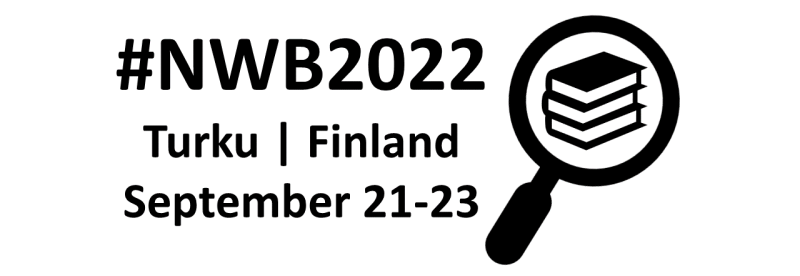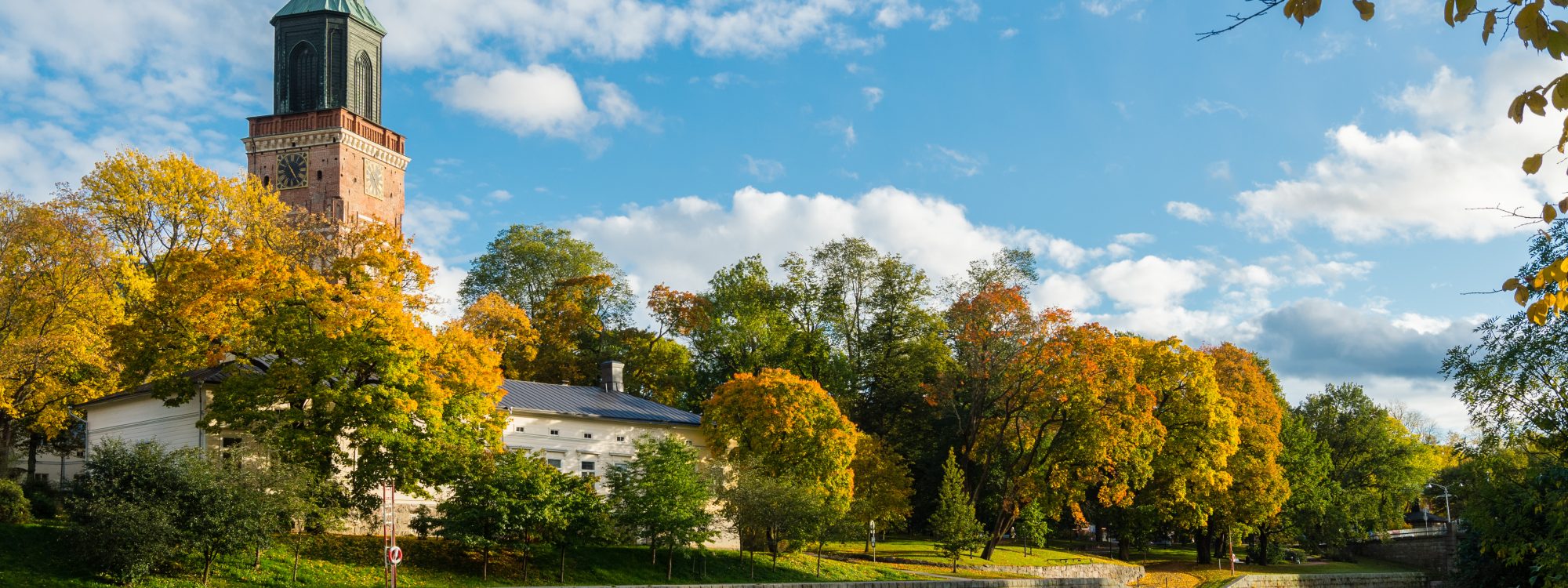Program
Program
Venue: University of Turku Main building, Tauno Nurmela hall, except for Session 3 which will be held in University of Turku Main building, Säästöpankki hall.
September 21 – Pre-workshop
11.00-12.00 Registration
12.00-12.10 Welcome
12.10-13.10 Ben McLeish (Digital Science): International Collaboration and Protecting Research from Foreign Interference
Chair: Kim Holmberg
In January 2022 the European Commission released a Staff Working Paper on methods for protection Research & Innovation from Foreign Interference. Almost exactly a decade earlier, the European Commission also penned a similar document stating the value of international collaboration and cooperation in order for the EU to maintain its position in the R&I global order, and to meet sustainability and technological advancement goals. Other funders like the Wellcome Trust and UKRI have also featured mandates around compliance with international sanctions and responsible use of research within industry for many years. Both the fostering and development of international cooperation in research and the strategic protection of research and researchers have become increasingly important in parallel. In this session, Ben McLeish will explore, using real data, how institutions can both foster collaborations and analyse existing partnerships across funding, publications or patents, allowing the field of bibliometrics to inform important policy decisions around research activity.
13.10-13.15 Short break
13.15-14.15 Michael Poersch (Elsevier): Research in the Nordics – Contribution to the Sustainable Development Goals and Impact on national and international Policy Papers
Chair: Kristina Eriksson-Backa
Nearly all research publications from Nordic universities and research institutions can be mapped to one or more specific SDG. Sophisticated search strings identify a reasonable allocation based on the content of title, abstract and keywords. A benchmarking on various metrics underlines a leading role in Europe. But what is the impact beyond academia on policy papers? Do research findings go over and above the academic world and expand into papers of governmental and intergovernmental institutions or think tanks? Based on real world data the presentation will identify some hot topics of Nordic research finding their way into the sphere of politics.
14.15-14.30 Coffee/Tea break
14.30-15.30 Marko Zovko (Clarivate): Supporting the Open Access initiatives of Nordic countries
Chair: Khadijah Kainat
Open science is a system change, its accessible and collaborative approach is expected to accelerate research and discovery. As a producer of publisher-neutral resources, Web of Science pioneers new ways to support open science initiatives across the community by providing data and services. 20 years after the Budapest Open Access Initiative nearly 60% of publications Nordic countries published in the last 5 years are open access. We will deep dive into the world of open access publications and understand your current position in the open access landscape; identify areas where libraries can foster open access publishing; assess current publication strategy in the light of open science; optimize collection development by understanding citation patterns of your researchers and measure your progress towards open research goals to fulfill mandates.
15.30-15.35 Short break
15.35-16.35 Keynote 1: Rodrigo Costas: Novel scientometric perspectives for understanding science and society
Chair: Kim Holmberg
18-19.30 Wine reception, hosted by the City of Turku. Venue: Turku City Hall
September 22
8.00-9.00 Registration
9.00-9.05 Opening of the workshop: Kim Holmberg
9.05-9.15 Welcome to the University of Turku: Kalle-Antti Suominen, Vice-rector for research
9.15-10.15 Keynote 2: Frank Miedema: Transition to Open Science: why and how
Chair: Kim Holmberg
10.15-10.30 Coffee/Tea break
10.30-12.00 Session 1: Open Access Publishing and Assessment Practices.
Chair: Susanna Nykyri
Maria Pietilä, Jouni Kekäle and Katri Rintamäki: High hopes and unmet expectations: adding open science elements in individual-level research assessment
Henrik Karlstrøm and Dag W. Aksnes: The benefit of open access (OA) for researchers in lower-income countries: Tracing evidence through analyses of reference patterns
Joonas Kesäniemi, Elina Pylvänäinen and Janne Pölönen: Open Access Information on Journals at the Nordic Level
Susanna Nykyri and Laura Himanen: Experiences and implications of the first round of monitoring of open science: Case Tampere University
12.00-13.00 Lunch
13.00-14.30 Parallel sessions 2 and 3
Session 2: Analysis of Scientific Literature.
Location: Tauno Nurmela hall
Chair: Marco Schirone
Hao Zhou: Full-text citation analysis of ancient Chinese classics
Hongyu Zhou: How is disciplinary knowledge base inherited over time: quantifying the adjacent and distant reuse of references within disciplines
Philipp Baaden and Daniel Richter: Unfolding the circular economy research landscape – an unsupervised text analysis approach
Marco Schirone: The Social Space of Sustainability Science: A Bibliometric Study of Leading Journals (1990-2021)
Session 3: Authorship Patterns: Gender, Language, Collaboration and Mobility.
Location: Säästöpankki hall
Chair: Tahereh Dehdarirad
Hans Pohl, Silvia Dobre and Rachel Herbert: Capturing researcher mobility with publication data
Ross W. K. Potter: Still the best of friends? A decline in intra-Nordic collaboration
Tahereh Dehdarirad and Maryam Yaghtin: Gender differences in the use of positive and negative terms by authorship teams: a study of citation contexts
14.30-14.45 Coffee/Tea break
14.45-16.15 Poster minute madness and poster session.
Chair: Birger Larsen
1. Cancelled
2. Witold Sygocki and Aneta Drabek: Does citing Wikipedia make sense – some examples on OSH
3. Kasper Bruun and Marianne Gauffriau: Selected responsible research assessment guidelines – an overview
4. Melanie Martini: The use of patent analysis in foresight, a data driven review
5. Hans Pohl: Assessing the citation impact of international research collaboration
6. Riku Hakulinen: Trying not to use research field classifications for determining citation impact
7. Erwin Krauskopf and Mauricio Salgado: Inconsistency in the use of the Digital Object Identifier (DOI) in journals used by Chilean researchers in Social Sciences, Arts & Humanities.
8. Caroline S. Armitage, Håkon M. Bjerkan, Inger Gåsemyr, and Eli Heldaas Seland: Building a portal for Norwegian sustainability research: From a bibliometric study to an open science service
9. Euan Adie: Bridging the Policy Gap
10. Rachel Miles: Virginia Tech Research Impact & Intelligence Team: An Integrative Approach to Research Analytics and Responsible Assessment Practices
11. Ashraf Maleki: Can Public Reviews on Policy Cited Scholarly Books Indicate Social Tension
18.00-19.00 PhDrinks! Informal get-together and networking event at Bar Varvintori (map link)
19.00 –> Workshop dinner at Restaurant Göran
September 23
9.00-10.00 Panel discussion: The advantages and limitation of the Nordic bibliometric indicator
Chair: Janne Pölönen and Vidar Røeggen
The Nordic bibliometric indicator is known as Den bibliometriske forskningsindikator (BFI) in Denmark, Julkaisufoorumi (JUFO) in Finland, Publiseringsindikatoren (NPI) or Tellekantene in Norway, and Norska listan or Norska modellen in Sweden. Denmark recently stopped producing the data and using it for performance-based funding. Norway is considering to stop using it for funding as well while continuing to collect data for the national research information system.
The use of other bibliometric data sources and indicators is increasing in academia. On this background, we ask: What are the disadvantages and advantages of the Nordic indicator compared to the alternatives? What are the consequences of possibly shutting down the Nordic indicator as a source of data and measurement?
The panel discussion includes experts on library and information science and bibliometrics from four Nordic countries:
- Birger Larsen (Aalborg University, Denmark)
- Susanna Nykyri (Tampere University, Finland)
- Dag Aksnes (Nordic Institute for Studies in Innovation, Research and Education, Norway)
- Camilla Lindelöw (University of Borås / National Library of Sweden)
10.00-10.15 Coffee/Tea break
10.15-11.45 Session 4: Research Assessment in Nordic Universities and Research Institutes.
Chair: Fereshteh Didegah
Caroline Wraae and Charlotte Wien: The Bermuda triangle of Lean, Bibliometrics, and Research Assessment
Forough Rahimi and Farshid Danesh: Role and statistical relationship of hot papers in the ranking of Scandinavian universities in ARWU
Otto Auranen and Janne Pölönen: Multidimensional evaluation and comparison of Finnish universities across fields of science
Fereshteh Didegah: The indicator model versus the quality-based model at Swedish Universities: Challenges and Recommendations
11.45-12.45 Lunch
12.45-13.45 Keynote 3: Cassidy Sugimoto: Metasciences: situating the past, imagining the future
Chair: Timothy D. Bowman
13.45-14.00 Short break
14.00-15.00 Session 5: Altmetrics.
Chair: Ashraf Maleki
André Brasil: Recognising limitations of traditional research outputs in policy: Investigating research intelligence dashboards as a suitable alternative
Dennis M. Donathan II and Timothy D. Bowman: How Do Reddit Users Discuss Academic Objects? A Mixed-Methods Analysis of One Subreddit
Ashraf Maleki and Kim Holmberg: Comparison between tweeting and retweeting in the context of altmetrics
15.00-15.15 Closing of the workshop and announcement of NWB2023

